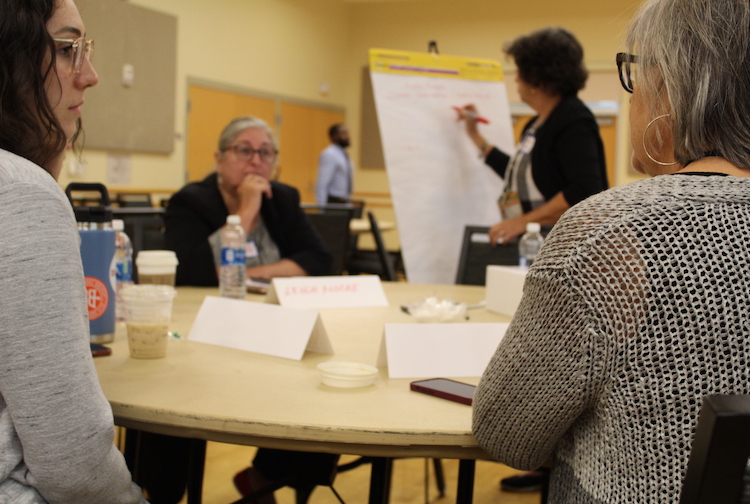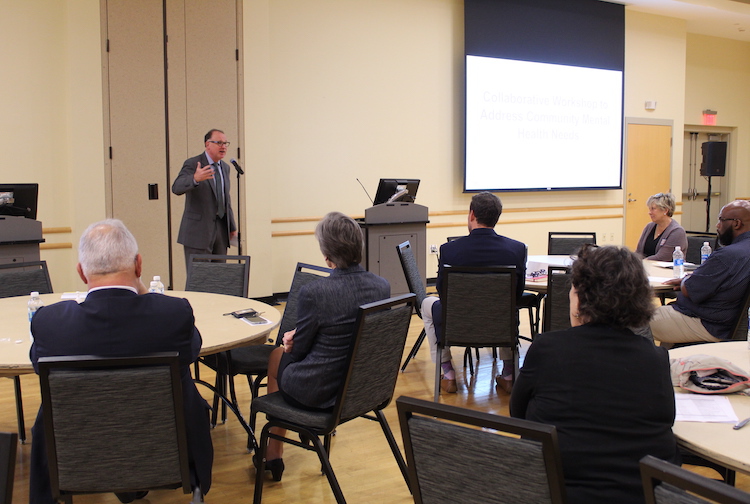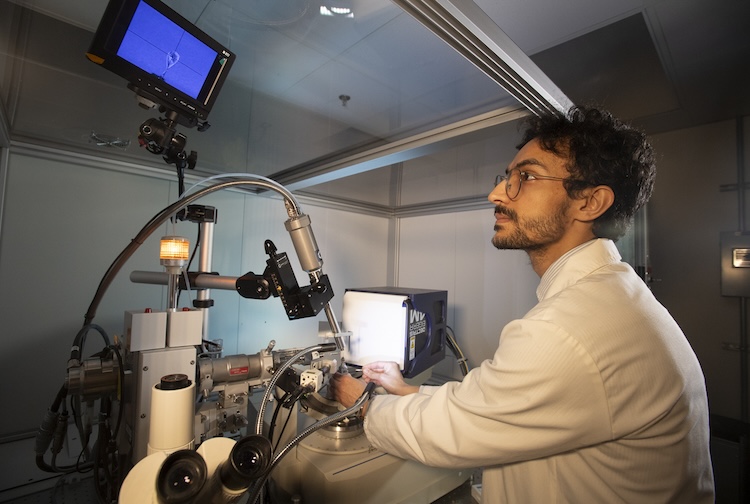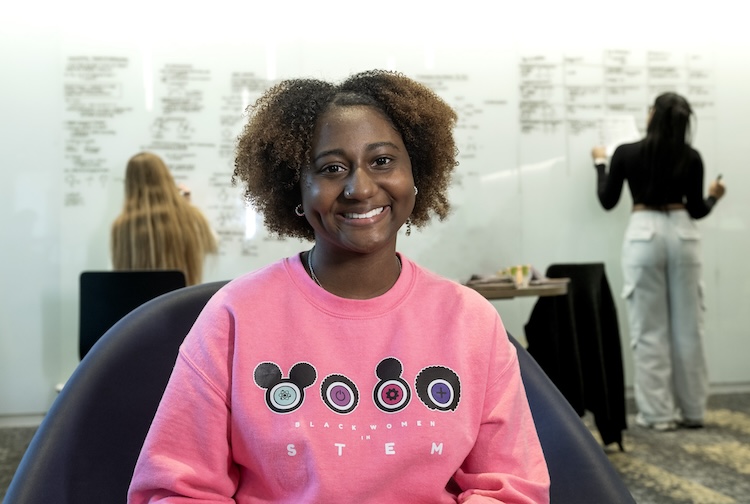
VCU nursing school hosts workshop to address community mental health access
The half-day event promoted interagency collaboration to improve mental health services for Virginians.
September 21, 2023 Participants of “A Collaborative Workshop to Address Community Mental Health Needs,” hosted by VCU School of Nursing, discussed in small groups different approaches to enhance the referral process for patients. (VCU School of Nursing)
Participants of “A Collaborative Workshop to Address Community Mental Health Needs,” hosted by VCU School of Nursing, discussed in small groups different approaches to enhance the referral process for patients. (VCU School of Nursing)
By Caitlin Hanbury
Dozens of agencies, community health partners and VCU Health employees participated in a workshop this week to collaborate on strategies to improve access to mental health resources across Virginia.
The half day event, “A Collaborative Workshop to Address Community Mental Health Needs,” was hosted by the Virginia Commonwealth University School of Nursing.
As the name of the event suggests, providers are seeing an increase in demand for mental health services. According to Virginia Department of Health, nearly 42% of Virginia residents reported one or more days of poor mental health in 2021. In rural, minority and underserved communities that percentage can be higher in part because of lack of access to these services.
"The VCU School of Nursing knows that addressing the mental health needs of the community is resource intensive in nature. As a school that is focused on community engaged work and preparing future nurses, we are deeply committed to continuing our collaboration with regional partners and agencies to better the mental health referrals process,” said Jean Giddens, Ph.D., professor and dean of the VCU School of Nursing.
One of the keynote speakers, State Sen. Creigh Deeds, who represents Charlottesville and surrounding counties, has been a major advocate for improving mental health resources.
As a member of the Virginia General Assembly for 32 years and the chair of the state’s Behavioral Health Commission, Deeds says he has seen advances Virginia has made in funding mental health services, but noted there is still work to be done to make sure those resources are more accessible. He described the establishment of the Behavioral Health Commission in 2021 as a significant investment toward sustaining Virginia’s behavioral health service system.
“The legislative process may be driven by crisis but the Behavioral Health Commission is not,” Deeds said. “The goal really at the end of the day is to make sure that people who need mental health services have access to the services no matter where they are in Virginia. The goal for me is to make sure we have a system that works in every corner of the commonwealth.”
State Sen. Creigh Deeds spoke to workshop attendees, many of whom are direct service providers or coordinate community health services, about public policy changes regarding mental health resources. (VCU School of Nursing)
Aside from learning about current and future policy issues regarding mental health services, attendees participated in working groups to identify current challenges in the mental health referrals process and actionable steps needed to improve it. Many shared their observations that there was a clear need to deliver mental health resources for the populations they serve, but highlighted a lack of clarity on how to systematically improve referrals to increase the likelihood of care delivery.
A method to increase access to care seen by Pam Parsons, Ph.D., associate dean of practice and community engagement and clinical professor in the VCU School of Nursing, is through mental health screenings conducted by the Mobile Health and Wellness Program. The School of Nursing-led program holds weekly wellness clinics in nine community-based sites to serve medically vulnerable or underserved populations in the Richmond region.
“What we have determined is that a more standardized evidence-based screening process facilitated greater delivery of education and referral to mental health resources,” said Parsons, who also coordinated the workshop.
The workshop concluded with attendees summarizing their recommendations to improve referrals and access to these services. Some of the recommendations included removing barriers to care by bringing services on-site to the communities in need, formalizing staffing structures for care coordination and referrals support, involving students in workforce training and strengthening partnerships within the community health profession to collectively address and communicate needs.
“We are so grateful for our community partners and agencies who tirelessly serve in two capacities: as community health providers serving Virginia’s communities and as collaborative and determined colleagues that participate in opportunities to improve our collective impact,” Parsons said.




